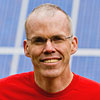 “It has become a rogue industry, reckless like no other force on Earth. It is Public Enemy Number One to the survival of our planetary civilization.” These are the words Bill McKibben uses to describe the fossil-fuel industry in a recent striking article in Rolling Stone which has received wide attention. It’s well worth reading, not least for the elegant lucidity of its prose. This post is not intended as some kind of summary, but rather as a reflection on McKibben’s notion that we need to recognise that we are up against a formidable enemy. He moves to this declaration by considering three numbers.
“It has become a rogue industry, reckless like no other force on Earth. It is Public Enemy Number One to the survival of our planetary civilization.” These are the words Bill McKibben uses to describe the fossil-fuel industry in a recent striking article in Rolling Stone which has received wide attention. It’s well worth reading, not least for the elegant lucidity of its prose. This post is not intended as some kind of summary, but rather as a reflection on McKibben’s notion that we need to recognise that we are up against a formidable enemy. He moves to this declaration by considering three numbers.
The first is 2o Celsius, the level of warming which is widely accepted politically as not to be exceeded. Scientifically it can’t be regarded as a safe level of warming, and it’s certainly not so regarded by McKibben, but ”political realism bested scientific data, and the world settled on the two-degree target”.
The second number is 565 gigatons, which is the amount of carbon dioxide scientists estimate can still be added to the atmosphere by mid-century and give us a reasonable (80%) hope of staying below two degrees.
The third number is 2,795 gigatons, which is the amount of carbon already contained in the proven coal and oil and gas reserves of the fossil-fuel companies, and the countries that act like fossil-fuel companies. “In short, it’s the fossil fuel we’re currently planning to burn.” And it’s five times more than we can burn and have any hope of staying within two degrees of warming.
Continue reading “McKibben: naming the enemy”
Like this:
Like Loading...

 Flying into Doha yesterday for the next round of international climate negotiations, landing in what seems to be a pile of white sand in the middle of nowhere, with high rise buildings sticking out of it. Is this where we’re going to stop climate change?
Flying into Doha yesterday for the next round of international climate negotiations, landing in what seems to be a pile of white sand in the middle of nowhere, with high rise buildings sticking out of it. Is this where we’re going to stop climate change? “It has become a rogue industry, reckless like no other force on Earth. It is Public Enemy Number One to the survival of our planetary civilization.” These are the words Bill McKibben uses to describe the fossil-fuel industry in a recent
“It has become a rogue industry, reckless like no other force on Earth. It is Public Enemy Number One to the survival of our planetary civilization.” These are the words Bill McKibben uses to describe the fossil-fuel industry in a recent 